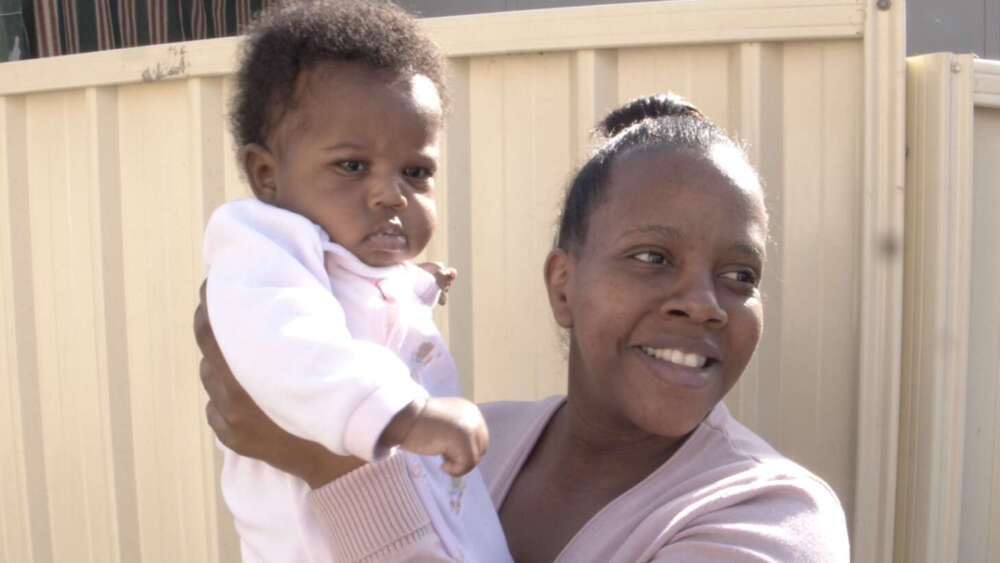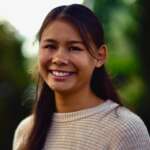'We are there for women who have nobody'
Hope House offers vital support to pregnant women
Addicted to drugs, homeless, on parole … and pregnant. Teigan knew that she needed help.
“I was heavily using drugs when I found out I was pregnant, so I had to self-detox,” she explains. “It’s very frightening when you don’t know what you’re doing.”
“I was couch surfing, I really didn’t have anywhere to go. I was staying at friends’ places a month or two at a time … It was just pretty stressful.”
Teigan was not only confronted with the lack of support she had for the nine months before her baby arrived. She also was aware of the challenge during that period of establishing herself as being fit for motherhood.
At a drug rehabilitation program she attended, Teigan was referred to Hope House, a pregnancy support clinic in Western Sydney. Run by Christians and reliant upon volunteers and donations, Hope House helps disadvantaged women throughout their pregnancy.
Hope House helped Teigan meet all of her practical needs.
“Anything that I needed, I knew I could call them and they’d do their best to help me.” – Teigan
“My antenatal appointments, every single one of them … they took me to,” says Teigan. “I couldn’t have gotten to them otherwise.
“They pretty much helped me get all the furniture for my house, anything that I needed I knew I could call them and they’d do their best to help me.”
These practical actions are only one way that Hope House bridged Teigan’s support gap. Emotional, relational and spiritual support is provided to their clients, many of whom – like Teigan – have no other support structures.
Although the road to motherhood and stability was not easy, Teigan says the arrival of her daughter Bobbi in August 2020 changed her perspective on life. She credits Hope House as crucial to her being able to make it through her pregnancy and delivery: “I couldn’t have done it without them.”
Teigan is not alone in the stuggles she faced as an expectact mum. Indeed, the founder of Hope House, Ashlie Stevenson, faced a similar support gap decades ago.
“I was alone in a rental property and it suddenly occurred to me that my children were all dead, and at my hand.” – Ashlie Stevenson
As a heroin addict, prostitute, domestic abuse survivor and homeless person in the 1970s, Ashlie was overwhelmed when she discovered she was pregnant. For her, this discovery led to abortion. Three times.
“Nobody ever spoke to me about the possible long-term ramifications: that there might be guilt, that there might be sadness, there might be loss,” she reflects.
“I remember a day I was alone in a rental property and it suddenly occurred to me that my children were all dead, and at my hand. I’ve just been left with a terrible regret that those children aren’t around me now, that I can’t speak to them; they [would have been] adults.”
Whe she was 44 and feeling deeply broken in her soul, Ashlie first heard the life-changing message of love, life and forgiveness in Jesus. This was an offer of restoration to her damaged self that she wanted to accept – couldn’t keep to herself.
Immediately, she began sharing the good news among the disadvantaged communities she was part of. This led to her establishing Hope House in 2019, convinced that the pregnancy support gap she had faced still remained in society.
“The reason I started Hope House is … to let them know the whole truth and then let them make a fully informed decision,” she explains.
“Whatever the women that come to us decide [to do], we will support them.
That doesn’t occur very often out in our culture, even today.”
“There’s very limited help in Australia for those women at risk who are pregnant.” – Nadia Rysko
Although Hope House is still in its early stages, helping even one woman makes it all worthwhile for Ashlie.
“[Our clients] were so grateful that they were supported, so that they could keep their children. So, if we can support them through situational change, they’re only too happy that they made that decision to parent their children.”
Instrumental to Hope House is former nurse and midwife Nadia Rysko. Ater hearing Ashlie’s story, Nadia offered her property – which includes a conveniently-sized old church hall – to serve as the Hope House headquarters.
“There’s very limited help in Australia for those women at risk who are pregnant … there is a gap and I think more pregnancy help centres are needed to step in and help these women,” says Nadia.
Nadia and her daughter also have been involved in supporting Teigan and other clients during their pregnancies. Many hours have been spent driving to and from appointments, sourcing furniture and necessities and being available as emotional support.
“We are there for women who have nobody. We step in, we lift them up, uphold them, encourage them and comfort them, until they are strong enough to stand on their own feet and run.”
“She’s a happy girl – and I’m also a happy mother.” – Catherine
One of these women is Catherine, a Ugandan refugee who arrived in Australia in 2019. While pregnant in 2020, Catherine and her husband Godfrey turned to Hope House for support with essential baby supplies and groceries.
“I had left work … It was going to be hard for my husband to take care of the needs of me, him and the baby,” she says.
Struggling to get a visa and therefore government payments, Catherine and Godfrey were thankful for the food and clothes hampers which Hope House provided freely.
“They welcomed us, we shared stories, everything they gave us was really good.”
Their daughter Abigail was born in March last year and while the couple have been going well, Hope House continues to support them with food hampers and relational support.
“She’s a happy girl – and I’m also a happy mother.”
*Originally published as a podcast on Newsworthy.org




